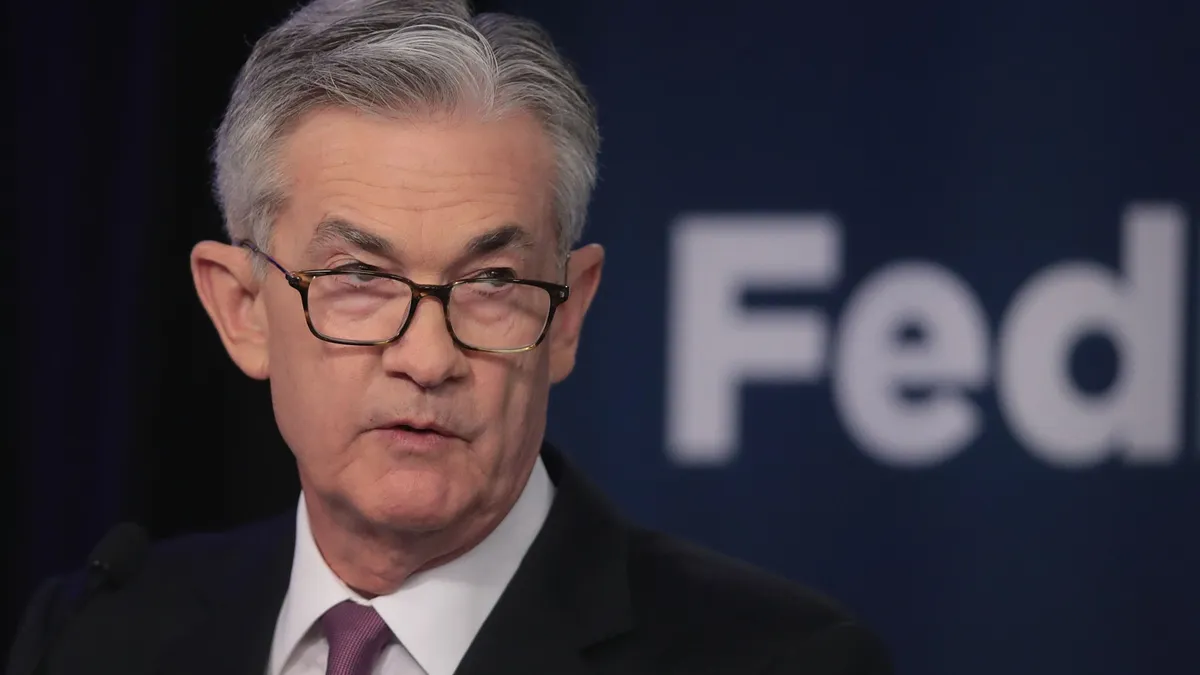The Federal Reserve has denied The Narrow Bank’s master account application more than six years after it applied.
TNB, a financial institution that offers depositors attractive interest rates and no other products, would allow nonbanks with large deposits, such as money market funds, to access rates near the federal funds rate.
Providing TNB with a master account would “pose undue risk to the stability of the U.S. financial system and would adversely affect the Federal Reserve’s ability to implement monetary policy” and pose such risk “particularly during times of financial or economic stress,” Chris Armstrong, executive vice president and head of operations and resiliency at the Federal Reserve Bank of New York, wrote in a denial letter Dec. 13.
TNB CEO James McAndrews penned a letter Monday to the Fed Chair Jerome Powell and New York Fed President John Williams calling the decision “ill-founded” and one that “should be reconsidered and reversed.”
The Fed evaluated TNB’s application as a Tier 3 applicant — which of the central bank’s three-tiered master account application guidelines, faces the strictest level of review — and determined, among other things, that strains felt by TNB or institutions like it could be “transmitted to other segments of the financial system” because it doesn’t have federal deposit insurance.
Further, because TNB doesn’t offer traditional banking services like lending, customers “would have fewer financial linkages to TNB than with a traditional bank,” thus increasing the chances of a bank run should TNB experience a “significant adverse development.”
McAndrews pushed back in his letter to Fed officials Monday, noting that TNB’s operations are designed to be “highly safe.”
“The operations of the bank largely consist of calculating simple interest and applying it to account balances and sending account balances via Fedwire Funds Transfer to account holders. The bank would not be linked to the internet through online banking services, and maintains high standards for cybersecurity, know your customer, and anti-money laundering programs. It maintains capital to meet operational risk regulatory requirements,” McAndrews said. “Consequently, TNB’s operational risk profile is safer than any private bank of which we are aware.”
TNB has a surge protector, limiting the flow of deposits into the bank, and a deposit cap of $160 billion, McAndrews noted. TNB also granted the New York Fed the exclusive right to increase deposit limits in its first two years of operation and to rescind the bank’s master account after three years.
“This extraordinary commitment recognizes that TNB is a novel type of financial intermediary, and offers to the Federal Reserve the option of observing its activity for a short period, during which its effects can be judged,” McAndrews wrote.
The Fed declined to comment on TNB’s master account application denial.
The debate over the Fed’s master accounts made its way into public conversation in 2022, when Republicans accused Sarah Bloom Raskin, a former candidate to serve as the central bank’s vice chair for supervision, of using her influence as a recent Fed governor to help Reserve Trust, a fintech, gain a Fed master account.
The Kansas City Fed initially denied Reserve Trust’s application for a master account in June 2017, and later granted one a month after Raskin joined Reserve Trust’s board.
Crypto-focused bank Custodia later sued the central bank and the Kansas City Fed, alleging an “unlawful delay” to its request to join the central bank’s payments system.
Nathan Miller, a spokesperson for Custodia, accused the Fed of displaying a “general bias against digital assets.”














